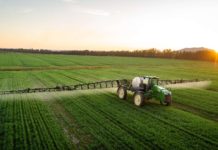The commemoration of Youth Month in June and the 45th anniversary of the student uprising in 1976 have commenced with the release of the latest Quarterly Labour Force Survey for the first quarter of 2021. This shows an increase in unemployment in the first quarter of this year, particularly among the youth and black women.
The last statistics released by Stats SA paint a grim picture of unemployment among our young people. According to the latest statistics, the highest unemployment rates were recorded for the youth aged between 15 and 24 at 63.3% and those aged between 25 and 34 at 41.3%.
Peter Setou, Chief Executive of the Vumelana Advisory Fund, a non-profit organisation that helps beneficiaries of the land reform programme to make their land profitable, says, “This is a very worrying trend as the prospects for the economy to create more jobs in the foreseeable future are not good. Some of these statistics should be located within the context of the largely unresolved land question in South Africa, which has far-reaching social and political ramifications, and the gap that still exists in creating an understanding of the role that youth can play in land reform, as entrepreneurs and active participants.”
To facilitate meaningful involvement of the youth we need, amongst others,
- Tailor made and market oriented vocational training activities that are adapted to the youth’s level of understanding and challenges that they face.
- Linkages with both private and public actors to facilitate access to land and inputs as well as to provide guidance to the youth in the selection of higher value agricultural products and market opportunities.
- Inclusion of youth in programme design and strategy processes.
- Creation and introduction of a range of incentives for younger people involved in agriculture and to support innovative ways of making agriculture more interesting, in this regard, ICT could play a role and offer new job opportunities. As an example, using phone applications in farming activities, the youth can change their perception in agriculture and see it as an exciting and innovative industry.
- Acceptance and promoting other forms of land use such as eco-tourism and promoting youth involvement in such land reform projects.
Among some of the beneficiary communities that Vumelana has supported include the Mamahlola CPA, located in Limpopo, where Vumelana facilitated a Communal Private Partnership agreement for the beneficiary community with private investors for support in efforts to enable the commercial viability of the CPA’s restituted land.
Maredi Letsoalo, Chairperson of Mamahlola communal property associations (CPA), says, “Over the past few years, I have been an active member of the Mamahlola tribe CPA, which is the landholding and juristic institution that acquires, holds and manages restituted land on behalf of the members of the beneficiary communities, and our biggest challenge has been getting the youth involved in the CPA.”
The CPA manages the land for more than 400 families from the Mamahlola tribe, who were removed from the Mamahlola area in Tzaneen and relocated to Hammanskraal outside Pretoria.
According to Letsoalo, “What is disheartening is that the average age of CPA members is around 52 years old. The youngest person in our CPA executive is 47 years old. Looking at the unemployment statistics among young people, we believe that active participation of young people in the management of the land and in agriculture can go a long way towards alleviating the unemployment crisis.”
He continues, “There is a lot of apathy from the youth regarding the land issue. Most of the younger generation show very little interest in the politics of the land. For the older generation who witnessed first-hand forced removals and the atrocities that went with them, the land question is a very emotive one. However, we need young people to understand the role that they can play in land reform, as they are the generation that will take over from our generation.”
Letsoalo explains, “My generation is the second generation that runs the CPA, and this group was involved with all the claims and counterclaim processes. Considering the average age of CPA members, it is important to have young people who will take over the reins and carry on with the work of ensuring the successful running of our ancestral land.”
He notes that, “Succession planning is important in land ownership, and this is where young people come in to fuse the institutional memory of the older generation with modern techniques to drive successful rural economic development.
“It is important that land reform and agriculture should be presented as a viable employment alternative to the growing mass of young people who are unemployed. We believe that ignorance and the stigma associated with agriculture dissuades young people from considering a career in land reform and agriculture.
“There is opportunity to gradually draw in young people to engage and participate to help support in reducing unemployment levels. There are many growth prospects for young people in the agricultural sector and within the land reform context, especially where CPAs are well managed and functioning properly.
“According to studies conducted by Mordor Intelligence, the South African agriculture market is projected to register a compound annual growth rate of 4.2% during the period 2021 to 2026. The industry holds the key to food security both for the growing urban population and the global market.
“These are opportunities we should show to young people in the agricultural sector. We need a mindset shift, to ensure that we absorb unemployed youth in land reform projects. My own children are doctors and tradesmen; it’s odd to get them involved as actively on land issues as they would in other things, and this has to change.
“As a CPA, we are mindful of the importance of not only having young people in the agricultural sector, but also having people who have the requisite skills and education to add value to the sector and transform the beneficiary land into productive land. So it remains important for young people to pursue some of these skills in order to contribute towards improving CPA communities,” Letsoalo says.
“The Mamahlola CPA has to date managed to send some of its young people to universities where they have studied agricultural science and have set up youth development programmes to groom young people straight out of high school to study agriculture. In 2020, the Mamahlola CPA supported five young people who have studied various fields in agriculture, including one who went on to pursue a Master’s degree.
“While we have a few youngsters managing our farms together with our partners, they are just a handful. We started with 15 young people, all of whom we sponsored and supported throughout high school.
“We need more young people participating in land reform projects; however, we also need to make sure that they have the right skills to take advantage of the opportunities that the sector has to offer,” says Letsoalo.
Setou concludes that, “The land reform programme requires young people to avail themselves and take advantage of the opportunities that come with land ownership. Young people have to step up to the plate and contribute their skills and expertise to their communities to ensure that the beneficiary land is used as productively as possible. As we commemorate Youth Month, we need to promote and highlight the importance of land to young people and emphasise how land reform can be used as a catalyst that can drive socio-economic development.”








